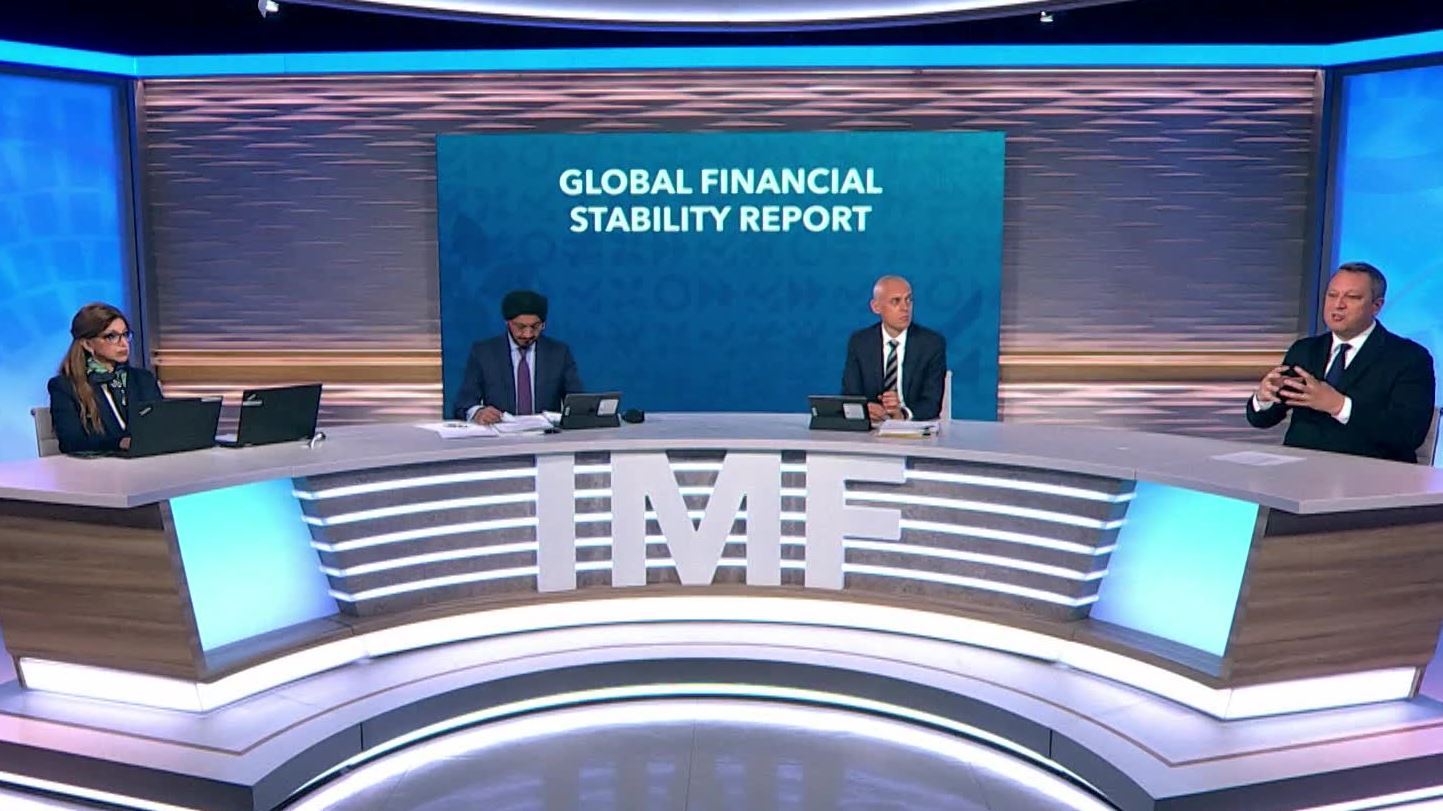Banks and markets are proving resilient in the face of war in Ukraine and the effects of pandemic, but risks and vulnerabilities are growing IMF Director of Monetary and Capital Markets Department Tobias Adrian said Tuesday (April 19) in Washington, DC.
“The global financial system has been stress tested with two shocks. The first is a sharp increase in interest rates related to the tightening cycle of monetary policy around the world. The second is the adverse shock from the war in Ukraine, which has pushed commodity prices and food prices up and has adversely impacted supply chains further. For now, the global financial system this year has been able to absorb both of these shocks. But there are many risks and vulnerabilities going forward,” Adrian said at the launch of the IMF’s Global Financial Stability Report.
The Fund is warning that elevated inflation may become ‘de-anchored’ from expectations the longer that prices continue to rise, especially for basic commodities like food and fuel.
“The single most important challenge of our time right now is inflation. Inflation is well above a target in the majority of countries around the world, and central banks have to act aggressively in order to bring inflation back down to target. There is a risk of the anchoring of medium term inflation expectations. So at the moment, we see that shorter term inflation expectations are very elevated. But then there's a gradual expectation of inflation coming back to target in most countries around the world. However, there's a risk that eventually inflation expectations cook the anchor and there could be more of an expectation of inflation, even in the medium term. Central banks have to counteract that by tightening monetary policy, slowing economic activity to bring inflation down,” he explained.
Adrian was asked about the US Federal Reserve working to balance tightening policy by raising rates, against the risk they go too high, too fast and send the US economy in to recession.
“We view the stance of monetary policy by the Federal Reserve as appropriate, and in our baseline forecast, we do have a softening of economic activity, which is the intended outcome of tighter monetary policy. But at the moment, we don't forecast a recession. Having said that, there are risks around that baseline and if further adverse shocks are hitting further supply shocks or further adverse shocks to real activity, certainly we could see worse outcomes than than what is forecasted in the baseline. We are in an environment of high risk, and it is very important for the Federal Reserve to be data dependent and to be very clear in the communication about monetary policy going forward,” he answered.
Adrian also answered questions about how China is dealing with rising Covid-19 shutdowns, a weakening property market and slowing economy.
“Now, the PBOC has taken some measure. Those are helpful measures. I think we should also consider broadening or stepping up the use of fiscal policy, particularly measures that lessen the impact on household balance sheet, as well as so smaller firms, for example. That ultimately structural measure, although it's important both in the real estate sector and the property developer sector addressing some of the vulnerabilities there, as well as other structural measure in terms of deleveraging the financial system, Chinese authorities have taken a number of steps over the years to address these vulnerabilities.”
Finally Adrian was asked about whether crypto currencies were being used by Russians to avoid the impact of sanctions.
“So putting money into crypto is one thing, but then getting it out is challenging. And so as a result of what we're seeing is indicative. There's no comprehensive, there's no comprehensive data on crypto assets, but we do have a lot of evidence that is suggesting that there is relatively little activity at this point in terms of undermining sanctions via crypto assets. “
A full schedule of events open to the public and media can be found at Home (imf.org)

